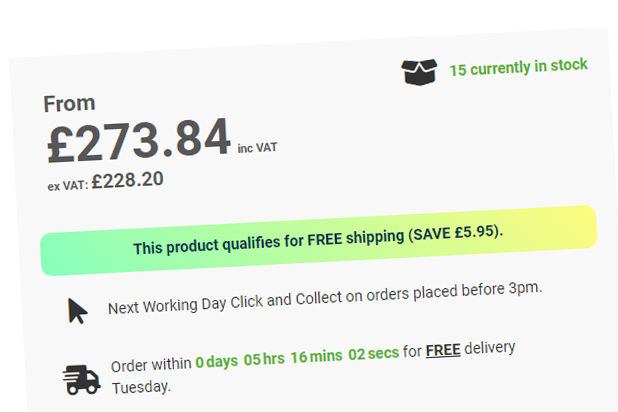
Ecommerce has become an integral part of business operations, and choosing the right platform for your online store can be a challenging decision. The top three popular eCommerce platforms in the market today are Magento 2, Shopify, and WooCommerce. Each platform has its unique features, benefits, and drawbacks that make them suitable for different business types and sizes. In this article, we will compare these three popular eCommerce platforms, highlighting their top five benefits and noteworthy drawbacks.
Top three Popular Ecommerce Platforms
Magento 2
Magento 2 is an open-source eCommerce platform that offers a flexible and scalable solution for small and large businesses. Here are the top five benefits of using Magento 2 for your online store:
- Scalability: Magento 2 is designed to handle high traffic and heavy loads. This platform can handle large product catalogs, and its architecture allows for customizations and integrations with third-party tools.
- Customisation: With Magento 2, you have full control over your online store’s design and functionality. This platform allows you to customise your store’s theme, layout, and extensions to meet your business needs.
- SEO-friendly: Magento 2 is SEO-friendly, with built-in features such as SEO-friendly URLs, sitemaps, and meta tags. These features help to improve your store’s search engine visibility and drive more organic traffic.
- Mobile-responsive: Magento 2 is optimised for mobile devices, ensuring that your store is accessible on all screen sizes. This feature is critical since most customers prefer to shop on their mobile devices.
- Multi-store support: With Magento 2, you can manage multiple online stores from a single admin panel. This feature is useful for businesses with multiple brands, product lines, or international stores.
Despite its many benefits, Magento 2 does require a higher level of technical expertise to set up and maintain. Which is where we come in. We have been working with Magento since its incarnation, back in the early 00’s. We have the expertise to design, develop and configure this platform. Alongside this we are pro-active in maintaining this ecom system to help our customers grow, encouraging customer retention through various 3rd party mediums and continued promotion of their products and brand through marketing campaigns and Pay Per Click (PPC).
Shopify
Shopify is a popular eCommerce platform that offers an all-in-one solution for businesses of all sizes. Here are the top five benefits of using Shopify for your online store:
- Ease of use: Shopify is known for its user-friendly interface that allows businesses to set up and manage their online stores easily. This platform offers a drag-and-drop interface, making it easy for non-technical users to create their store.
- Security: Shopify takes security seriously, and it provides SSL certificates, fraud detection tools, and payment gateways to ensure your store is secure.
- Payment processing: Shopify offers its payment gateway, Shopify Payments, which simplifies payment processing for businesses. This feature eliminates the need for third-party payment processors, which can save businesses money on transaction fees.
- App store: Shopify has an extensive app store that allows businesses to add additional functionality to their store easily. This feature is particularly useful for businesses that require customizations beyond the core features offered by Shopify.
- Customer support: Shopify offers 24/7 customer support through phone, email, and live chat. This feature ensures that businesses can get the help they need, whenever they need it.
Despite its many benefits, Shopify has some noteworthy drawbacks that may impact your decision to use this platform. One significant drawback is that it charges transaction fees for using third-party payment gateways. Additionally, Shopify’s monthly pricing model may make it expensive for some businesses, especially larger businesses with higher sales volumes.
WooCommerce
WooCommerce is an open-source eCommerce platform that operates as a plugin for WordPress. Here are the top five benefits of using WooCommerce for your online store:
- Flexibility: WooCommerce offers a flexible and customizable solution that can be tailored to suit your business needs. This platform offers numerous themes and extensions that allow you to add additional functionality to your online store.
- Cost-effective: Since WooCommerce is a free plugin for WordPress, it is a cost-effective solution for businesses with limited budgets. While you may need to invest in some premium themes or extensions, the overall cost is still significantly lower than other eCommerce platforms.
- WordPress integration: WooCommerce integrates seamlessly with WordPress, which is a popular content management system for websites. This integration allows you to use WordPress features such as blogging and SEO to enhance your online store.
- Developer-friendly: WooCommerce is an open-source platform, which makes it developer-friendly. This feature allows developers to customise the platform to suit their clients’ specific business needs.
- Community support: WooCommerce has a large community of developers, users, and contributors who are available to provide support and answer questions. This feature ensures that businesses using WooCommerce have access to a wealth of resources and support.
Despite its many benefits, WooCommerce has some drawbacks that may impact your decision to use this platform. One significant drawback is that since it operates as a plugin for WordPress, it may not be suitable for businesses with high traffic volumes. Additionally, since WordPress is the most popular open-source platform, businesses may need to invest in additional security measures to protect their online store as a result.
What popular ecommerce platforms should I use?
When choosing an eCommerce platform for your online store, it is essential to consider your business needs, budget, and technical expertise. Magento 2, Shopify, and WooCommerce are three popular eCommerce platforms that offer unique features, benefits, and drawbacks. Magento 2 is a scalable platform that offers customisation and SEO-friendly features but has a higher start up cost, due to the complexity of the platform. Shopify is user-friendly, secure, and has a large app store, but it charges monthly fees and may be expensive for businesses as apps and integrations are added. Even simple features, such as layered/filter navigation, can incur monthly charges. WooCommerce is a flexible, cost-effective platform that integrates with WordPress and has a developer-friendly community, but may not be suitable for businesses with high traffic volumes and large product offerings due to its limitations in some aspects in its admin panel.
In conclusion, each eCommerce platform has its unique features and benefits that make them suitable for different businesses. It is essential to evaluate your business needs and budget carefully, to choose the platform that best suits your business. Call us on 01484 506220 or email [email protected] to discuss your project. We can chat through your requirements, budget and future plans in order to suggest an appropriate E-commerce strategy, with a platform that will grow with you, and your business.






